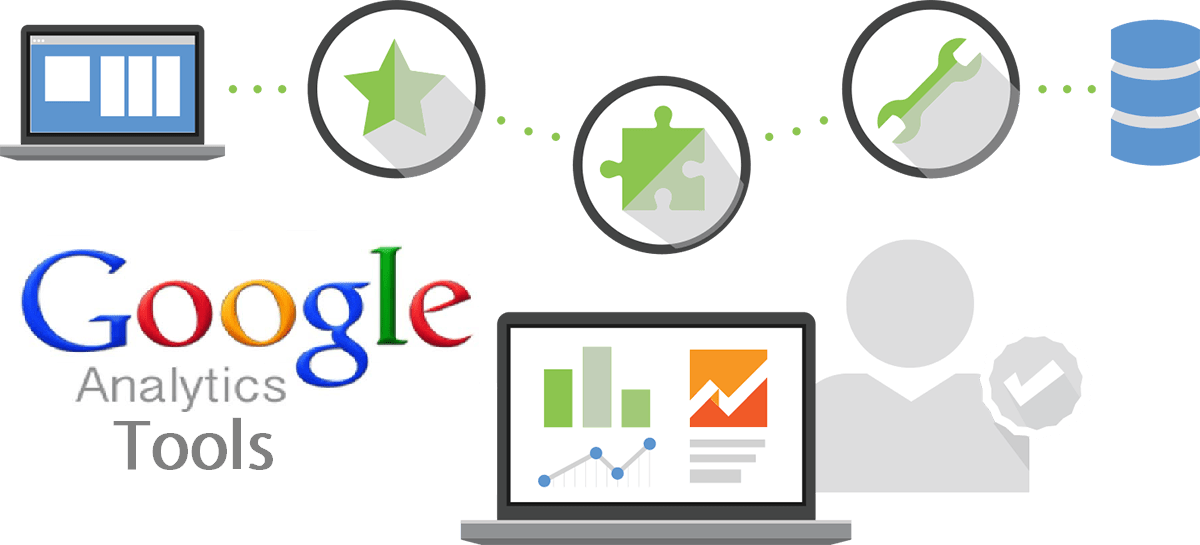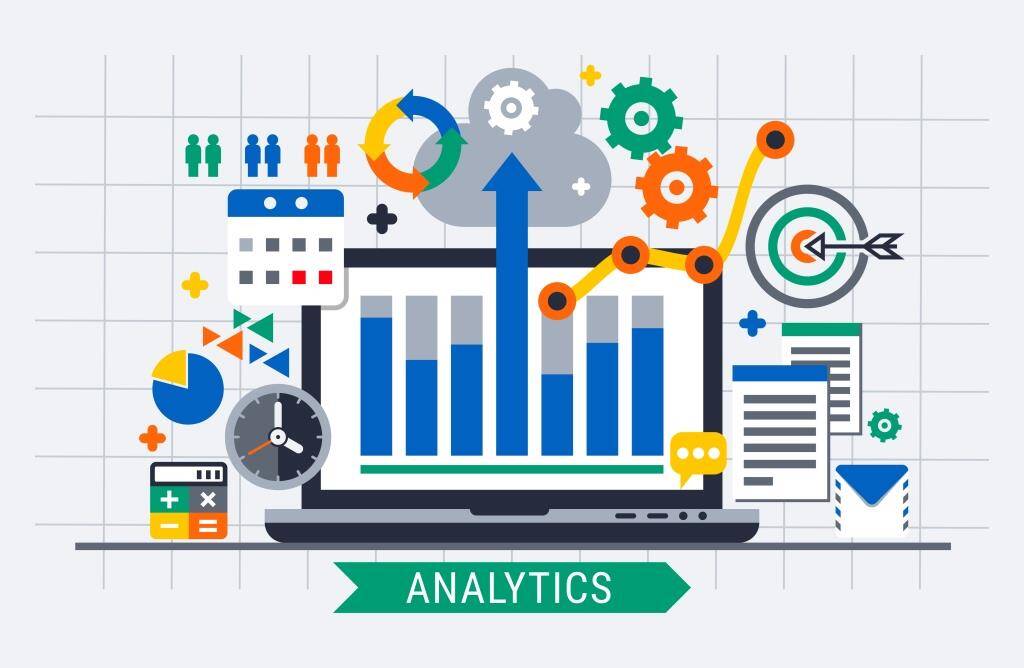Enhance ROI and Efficiency Through Strategic Analytics Planning
Enhance ROI and Efficiency Through Strategic Analytics Planning
Blog Article
Make The Most Of Growth: Just How Analytics Drive Better Approaches
In today's data-driven landscape, companies increasingly identify the crucial duty of analytics in shaping reliable growth techniques. By utilizing information insights, businesses can fine-tune their operational strategies, prepare for market adjustments, and improve customer engagement. The difficulty lies not just in accumulating data yet in effectively analyzing it to drive tangible outcomes. As we discover the essential advantages and methods associated with analytics, a critical concern emerges: exactly how can companies ensure they are leveraging these understandings to unlock their full possibility? The solution may redefine the future of critical preparation.
Understanding Data Analytics
Information analytics is a methodical computational analysis of data that makes it possible for organizations to discover significant patterns and insights. This process includes a selection of methods, including analytical evaluation, predictive modeling, and information mining, which jointly aim to transform raw information right into actionable info - Analytics. By utilizing these methodologies, organizations can make educated choices that are rooted in empirical evidence as opposed to instinct alone
The foundation of data analytics hinges on its capacity to handle substantial quantities of info from varied sources. This includes organized data, such as data sources, and disorganized data, consisting of social media interactions and client responses. Via the usage of specialized software and devices, analysts can draw out and refine this data effectively, recognizing fads and connections that may not be right away noticeable.
Comprehending information analytics also entails recognizing the relevance of information high quality and honesty. Accurate and trusted data is vital for meaningful evaluation; thus, organizations must execute robust data governance methods. In addition, the iterative nature of analytics enables for constant improvement and improvement of techniques, ensuring that companies remain dexterous in the face of altering market dynamics and consumer habits.
Secret Advantages of Analytics

Among the essential advantages of analytics is its ability to provide actionable insights. Organizations can promptly examine huge amounts of information, discovering patterns that might not be promptly noticeable. This assists in anticipating market shifts and adjusting techniques accordingly. Additionally, analytics promotes a culture of evidence-based decision-making, minimizing reliance on instinct and guesswork.
One more substantial benefit is boosted customer understanding. Analytics tools make it possible for businesses to segment their target market, track customer behavior, and personalize advertising initiatives. This targeted strategy not only enhances customer involvement yet also drives greater conversion rates.

Implementing Analytics Techniques
To fully recognize the benefits of analytics, organizations need to adopt structured methods for implementation. This starts with plainly defining goals that align with more comprehensive company objectives. By developing specific, quantifiable results, companies can concentrate their analytics efforts on areas that generate the highest possible roi.
Following, organizations must prioritize information administration to guarantee the stability and protection of the information being evaluated. This involves establishing up site protocols for data collection, storage, and gain access to while adhering to appropriate guidelines. Making certain premium information is essential for creating purposeful understandings.
Furthermore, fostering a culture of data-driven decision-making is important. This calls for training staff members to analyze analytics searchings for and motivating cooperation throughout departments. They are more most likely to integrate understandings into their day-to-day operations. when teams recognize the value of analytics.
Last but not least, organizations should frequently evaluate and refine their analytics strategies. The landscape of information and modern technology is constantly developing, and staying adaptable will allow companies to utilize brand-new tools and approaches efficiently. By implementing these organized methods, organizations can take full advantage of the effect of their analytics campaigns and drive sustainable development.
Tools for Effective Evaluation
Efficient analysis counts on a range of tools that promote the removal of understandings from data - Analytics. These devices can range from straightforward spread sheet applications to advanced device finding find this out platforms, each offering a special objective in the analytical process
Data visualization software application, such as Tableau and Power BI, plays an essential role in transforming intricate datasets right into understandable visual depictions. These tools make it possible for analysts to identify fads and patterns quickly, enabling even more informed decision-making.
Analytical analysis software program, like R and SAS, offers sophisticated abilities for performing extensive evaluations, including regression, hypothesis testing, and predictive modeling - Analytics. These attributes encourage organizations to attract meaningful conclusions from their data, determining prospective opportunities and threats
Additionally, data source monitoring systems such as SQL and NoSQL databases supply the required facilities for keeping and inquiring big quantities of information efficiently. They make sure that data is arranged and easily accessible for evaluation.
Last but not least, organization intelligence systems incorporate numerous information resources, offering a thorough sight of business performance. By using these tools effectively, services can boost their logical capacities, enabling them to establish approaches that optimize development and enhance overall performance.
Instance Researches of Success
Successful organizations usually take advantage of data analytics to drive impactful strategies, as shown by several remarkable study. One famous instance is Netflix, which utilizes innovative algorithms to examine audience choices and habits. By employing these insights, Netflix has actually successfully tailored its material recommendations, resulting in raised customer interaction and client retention. Their data-driven technique has actually unquestionably added to their status as a leading streaming solution.

Furthermore, Starbucks utilizes data analytics to figure out optimum shop places and improve its product offerings. By taking a look at consumer demographics and acquiring patterns, Starbucks effectively identifies high-potential markets and customizes its food selection to regional tastes, driving sales and consumer commitment.
These instance researches illustrate that effective utilization of data analytics can bring about critical benefits, cultivating development and development within companies throughout various sectors.
Final Thought
In final thought, the integration of analytics into business strategies substantially enhances decision-making procedures and promotes lasting development. The effective execution of analytics tools further sustains agility and innovation, making it possible for organizations to browse competitive landscapes with better precision.
Data analytics is an organized computational analysis of information that enables companies to uncover meaningful patterns and understandings.Comprehending information analytics likewise entails recognizing the relevance of data high quality and integrity. Precise and dependable data is vital for meaningful analysis; hence, organizations need to apply durable information governance methods.Following, companies should prioritize information governance to make sure the honesty and safety and security of the information being assessed.Successful companies usually leverage information analytics to drive impactful strategies, as shown by numerous notable case Homepage research studies.
Report this page